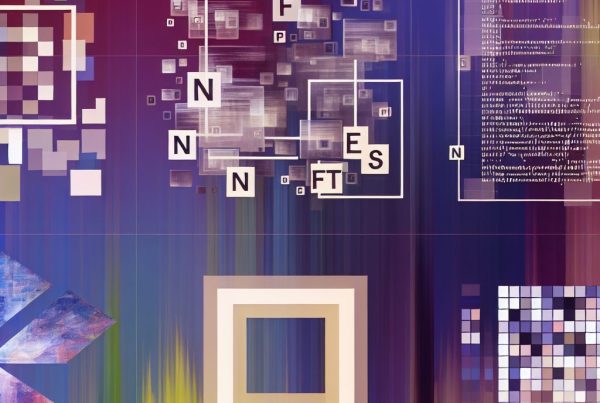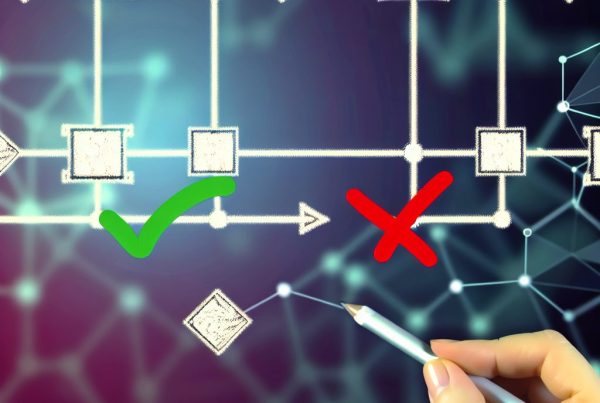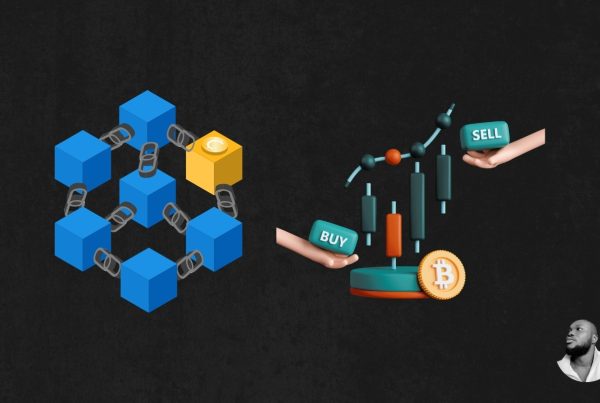What Are Oracles in Blockchain?
In the rapidly evolving world of blockchain technology, the term oracle has gained significant traction. Oracles serve as a crucial bridge between the blockchain and the external world, enabling smart contracts to access real-time data and information that exists outside their native environment. This article delves into the intricacies of oracles, their types, functionalities, and their pivotal role in the cryptocurrency industry.
Understanding Oracles
At its core, an oracle is a service that provides smart contracts with external data. Smart contracts are self-executing contracts with the terms of the agreement directly written into code. However, they are limited to the data available on the blockchain. This is where oracles come into play, supplying necessary information from the outside world, such as market prices, weather conditions, or even sports scores.
Types of Oracles
Oracles can be categorized into several types based on their functionality and the nature of the data they provide:
- Software Oracles: These oracles fetch data from online sources, such as APIs or websites. They are commonly used to retrieve information like cryptocurrency prices or stock market data.
- Hardware Oracles: These oracles connect physical devices to the blockchain. For instance, a temperature sensor could provide data to a smart contract that triggers actions based on temperature readings.
- Inbound Oracles: These oracles send data from the external world to the blockchain. They are essential for smart contracts that require real-time information.
- Outbound Oracles: In contrast, outbound oracles send data from the blockchain to the external world. They can trigger actions in real-world systems based on blockchain events.
- Consensus Oracles: These oracles aggregate data from multiple sources to ensure accuracy and reliability. They are particularly useful in scenarios where data integrity is critical.
The Role of Oracles in Smart Contracts
Smart contracts are designed to execute automatically when predefined conditions are met. However, their effectiveness is often limited by their inability to access real-world data. Oracles enhance the functionality of smart contracts by providing them with the necessary information to execute their terms accurately.
For example, consider a smart contract for a decentralized insurance policy that pays out based on weather conditions. Without an oracle, the smart contract would have no way of knowing whether it rained or not. By integrating an oracle that provides real-time weather data, the smart contract can automatically execute payouts based on the actual weather conditions.
Real-World Applications of Oracles
Oracles have found applications across various industries, demonstrating their versatility and importance in the blockchain ecosystem. Here are some notable use cases:

- Decentralized Finance (DeFi): Oracles play a vital role in DeFi platforms by providing accurate price feeds for assets. For instance, platforms like Chainlink aggregate price data from multiple exchanges to ensure that smart contracts operate on reliable information.
- Insurance: In the insurance sector, oracles can automate claims processing. For example, if a flight is delayed, an oracle can provide this information to a smart contract, triggering automatic compensation for affected passengers.
- Supply Chain Management: Oracles can track the movement of goods in real-time. By integrating data from IoT devices, companies can ensure transparency and efficiency in their supply chains.
- Gaming: In the gaming industry, oracles can provide random number generation (RNG) for fair gameplay. This ensures that outcomes are not manipulated and enhances user trust.
Challenges and Limitations of Oracles
Despite their advantages, oracles face several challenges that can impact their effectiveness:
- Centralization Risks: Many oracles rely on a single source of data, which can lead to centralization and potential manipulation. Decentralized oracles aim to mitigate this risk by aggregating data from multiple sources.
- Data Integrity: The accuracy of the data provided by oracles is crucial. If an oracle provides incorrect information, it can lead to erroneous contract executions and financial losses.
- Latency Issues: Real-time data is essential for many applications. However, delays in data transmission can hinder the performance of smart contracts.
Popular Oracle Solutions
Several oracle solutions have emerged in the blockchain space, each with unique features and capabilities:
- Chainlink: One of the most well-known decentralized oracle networks, Chainlink connects smart contracts with real-world data. It uses a network of independent node operators to ensure data accuracy and reliability.
- Band Protocol: Band Protocol is another decentralized oracle solution that aggregates and connects real-world data to smart contracts. It focuses on providing fast and secure data feeds.
- API3: API3 aims to create a decentralized network of APIs that can be used by smart contracts. It allows developers to build oracles that can access any API data.
- Tellor: Tellor is a decentralized oracle that allows users to request data and incentivizes miners to provide accurate information. It focuses on providing a secure and transparent data feed.
The Future of Oracles in Blockchain
The future of oracles in the blockchain ecosystem looks promising. As the demand for decentralized applications (dApps) continues to grow, the need for reliable and accurate data sources will become increasingly important. Innovations in oracle technology are expected to address current challenges, enhancing their functionality and reliability.
Moreover, as more industries adopt blockchain technology, the integration of oracles will become essential for enabling smart contracts to interact with real-world data. This will lead to the development of more sophisticated dApps that can operate seamlessly across various sectors.
FAQs about Oracles in Blockchain
What is the primary function of an oracle in blockchain?
The primary function of an oracle is to provide smart contracts with external data that is not available on the blockchain, enabling them to execute based on real-world information.
Are oracles centralized or decentralized?
Oracles can be either centralized or decentralized. Centralized oracles rely on a single source of data, while decentralized oracles aggregate data from multiple sources to enhance reliability and reduce manipulation risks.
How do oracles ensure data accuracy?
Decentralized oracles often use consensus mechanisms to aggregate data from multiple sources, ensuring that the information provided is accurate and reliable. Additionally, they may incentivize data providers to maintain integrity.
Can oracles be hacked?
While oracles themselves can be vulnerable to attacks, decentralized oracles are designed to minimize risks by using multiple data sources and consensus mechanisms. However, the integrity of the data provided is crucial, and any compromise can lead to issues.
What are some examples of oracle use cases?
Oracles are used in various applications, including decentralized finance (DeFi) for price feeds, insurance for automated claims processing, supply chain management for tracking goods, and gaming for fair gameplay through random number generation.
Conclusion
Oracles are a fundamental component of the blockchain ecosystem, enabling smart contracts to interact with real-world data. Their ability to provide accurate and timely information is crucial for the success of decentralized applications across various industries. As the technology continues to evolve, oracles will play an increasingly vital role in bridging the gap between blockchain and the external world.
For the latest updates on cryptocurrency news and price tracking, consider visiting Bitrabo. Stay connected with me on social media: follow me on X, Instagram, and Threads.
Disclaimer: This article is for informational purposes only and should not be considered financial advice. Always conduct your own research before making investment decisions.
The Crypto Watchlist of the Week 🔎
Subscribe to receive expert-curated projects with real potential—plus trends, risks, and insights that matter. Get handpicked crypto projects, deep analysis & market updates delivered to you.


